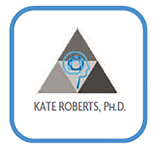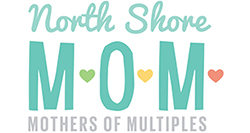 |
The child-centered approach to parenting was born of good intentions. It was meant to provide an alternative to the traditional adult-centered approach to parenting, which was considered to be overly authoritarian, and indeed often included physical punishment. In the adult-centered approach, parents take the lead in setting family rules, making family decisions and enforcing maturity demands. While there are many forms of parent-centered child rearing, they all embrace the idea that parents have legitimate authority over their children, and thus should guide and direct their children’s development. If they failed, their child would become “spoiled”, a term which our great grandparents may have meant quite literally.
Child-centered parenting emerged as a reaction against the adult-centered approach. Although it had its origins in the progressive parenting movements of the 1920’s and 1930’s, it took hold with greater fervor after the 1960’s. The child-centered approach puts the child rather than the parent at the center of decision-making. From a child-centered perspective, children are not simply lumps of clay for parents to mold according to their wishes. Instead, children are active in their own development and learning. They are born ready to explore the world and to learn through active discovery. It is the job of the parent to kindle rather than stifle a child’s self-directed curiosity. Too much parental direction can squelch a child’s initiative and damage her confidence and self-esteem. Borrowing a phrase from proponents of child-centered education, a good parent functions more like “a guide on the side” rather than an all-knowing “sage on the stage.”
Child centered parents love their children and want to promote their autonomy, individuality and creativity. Who could disagree with these values? The problem, however, is not these are bad values; the problem is that they are one-sided values. In a well-meaning attempt to promote self-directed cooperative children, child-centered parenting fails to provide the very direction that children need to develop these skills in the first place. The logic goes like this:
- If we want self-directed children, we should let our children direct themselves. Too much direction will squelch a child’s inherent initiative and creativity.
- If we want our children to be active learners, we encourage them to explore the world and make their own discoveries. Too much direct instruction robs children of the opportunity to think deeply and make their own connections.
- If we want children to feel good about themselves, we should praise their initiative, effort and accomplishments. We should avoid critical feedback that can diminish a child’s confidence or self-esteem.
- If we want children to develop their own moral compass, we should encourage them to think for themselves about what makes something right or wrong. Different people have different beliefs about right and wrong. To take a hard stand on moral issues runs the risk of imposing moral standards onto children, who must ultimately develop own thoughts about right and wrong.
The problem with this line of thinking is that children enter the world as incomplete beings. They are not little adults who can direct their own thinking, make responsible decisions, or make complex connections for themselves. It is true that children come into life with many surprising skills and abilities. However, children are nonetheless undeveloped beings; they need adults to help complete their development. They do not begin life as self-directed, empathic and moral beings; instead, they need parental direction and guidance of in order to develop into self-directed, empathic and moral beings. By encouraging parents to relinquish their authority in order to foster the development of children’s autonomy, the child-centered movement has produced large numbers of children who have failed to develop important socio-emotional, motivational, moral and academic skills.

















